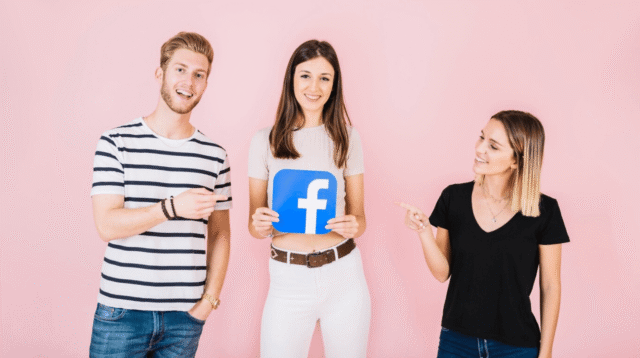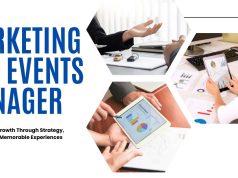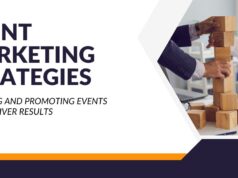Planning an event is only half the battle; the real challenge lies in making sure people show up. With over 2.9 billion users, Facebook remains one of the most powerful tools for event promotion, offering unmatched reach and engagement potential. But how do you effectively market an event on Facebook to ensure it’s a success? Whether you’re organizing a small community gathering or a large-scale conference, this guide will walk you through practical steps to draw attention to your event and get those RSVPs rolling in.
What You’ll Learn
By the end of this guide, you’ll know how to:
- Set up your Facebook event page for maximum impact
- Leverage Facebook Ads to widen your reach
- Use organic content and engagement tactics to create buzz around your event
- Measure your campaign’s success for future improvements
Get ready to make your event a can’t-miss occasion with these tried-and-true strategies.
1. Create an Engaging Facebook Event Page
Your event page is the foundation of your marketing campaign on Facebook. Here’s how to set it up to grab attention and encourage RSVPs.
1.1 Pick a Compelling Event Name
The first thing people notice is your event’s name. Keep it clear, concise, and engaging. Use action words or emphasize exclusivity to create a sense of urgency. For example, instead of “Art Workshop,” try “Exclusive Hands-On Watercolor Workshop.”
1.2 Use an Eye-Catching Visual
The event cover photo will visually represent your event on Facebook. Choose a high-quality image that reflects the theme and tone of your event. If possible, overlay some text using tools like Canva to include the event title or date in the image.
1.3 Write a Persuasive Description
The event description is your chance to sell the event. Answer the following questions:
- What is the event about?
- Who is it for?
- Why should someone attend?
Include details like the schedule, speakers, or exclusive perks attendees will get. Don’t forget to add a clear call to action (e.g., “Click ‘Interested’ now to stay updated!”).
1.4 Add Key Details
Be specific and clear about the essential event details:
- Date and time
- Location (physical or virtual)
- Ticket information or entry requirements
Double-check accuracy; no one likes finding out there’s a typo in the time or location.
2. Run Facebook Ads for Maximum Reach
Organic reach only goes so far. Here’s how to use Facebook Ads to ensure your event appears in as many relevant feeds as possible.
2.1 Target the Right Audience
Facebook allows you to customize your audience based on demographics, interests, location, and behaviors. For example:
- Hosting a local business networking event? Focus on users in a specific city or region.
- Organizing a yoga retreat? Target users interested in wellness, fitness, or stress relief.
The narrower and more defined your audience, the better your ROI.
2.2 Use Video Ads
If you can, create a short video teaser to promote your event. Videos perform exceptionally well on Facebook, boosting engagement and click-through rates. Showcase highlights from previous events or include testimonials to create FOMO (fear of missing out).
2.3 Set a Budget
Facebook offers flexible budget options for ads. Even a small budget can drive results if targeted well. Start with a daily budget and test multiple ad variations to see which one performs best. For example, one ad could emphasize exclusive perks, while another focuses on a star speaker or performer.
2.4 Use Retargeting
Use Facebook’s Pixel to retarget users who’ve interacted with your content but haven’t signed up yet. This gentle nudge can convert potential attendees into confirmed RSVPs.
3. Leverage Organic Posting and Engagement
While paid ads are crucial, organic marketing plays an equally important role in building buzz.
3.1 Post Regular Updates
Keep the excitement alive by posting regularly about the event. Here are some ideas for your content calendar:
- Behind-the-scenes photos or videos during event planning
- Countdown posts as the event date approaches
- Highlighting key speakers, performers, or activities
- Sharing testimonials or user-generated content from previous events
3.2 Collaborate with Influencers
If there are influencers or community leaders relevant to your event, partnering with them can bring more visibility. Ask them to share posts or stories promoting your event and offer them complementary tickets or shoutouts in return.
3.3 Engage Directly with Followers
Make your audience feel heard by engaging with their comments, answering questions, and thanking people who RSVP. The more active and approachable you seem, the more goodwill and excitement you’ll generate around your event.
3.4 Use Stories and Reels
Facebook Stories and Instagram Reels are highly engaging tools. Use short, creative videos to announce surprises, share quick updates, or simply build hype. Features like polls or questions are excellent for interaction.
3.5 Create Exclusive Groups or Hashtags
If your event is ongoing or part of a series, create a Facebook Group dedicated to attendees. For instance, if you’re organizing a fitness expo, you could even start a group for health enthusiasts to discuss topics like workouts and diet tips. And always create an event-specific hashtag to encourage user-generated content.
4. Build a Sense of Community
Creating a thriving community around your event benefits not just this event, but future ones too.
Encourage attendees to share their excitement by posting about the event and tagging your page. You could even incentivize this with a contest. For instance, ask attendees to post their “Outfit of the Day” before a conference or show themselves prepping for the big day. The post with the most likes wins a small prize.
Additionally, start a meaningful dialogue before the event by creating anticipation through sneak peeks or interactive posts like quizzes, polls, or “choose your favorite” thumbnails.
5. Analyze and Improve
Every event is an opportunity to learn. Use Facebook’s analytics tools to measure the success of your marketing efforts. Key metrics to track include:
- Number of RSVPs (via the event page)
- Ad performance (click-through rate, impressions, and conversions)
- Engagement rate on organic posts
Post-event, send surveys to attendees to gather feedback. Understanding what worked and what didn’t can help you plan an even better event next time.
Make Your Event an Unforgettable Experience
Marketing an event doesn’t have to be a shot in the dark. By leveraging Facebook’s tools effectively—from creating an appealing event page to targeting the right audience with paid ads and engaging followers organically—you can ensure your event gets the attention it deserves.
Ready to take the first step? Start planning your Facebook event page today, and watch as the RSVPs pour in. With a clear strategy and a bit of creativity, your next event could be the talk of the town.









